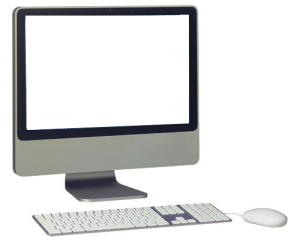This tax season will have many businesses and accountants spending more time preparing returns as a result of the new form 3115 requirement. For those late to the party, the final regulations have been issued by the IRS for the tax treatment of tangible property. The purpose of the new requirement is to ensure that tangible property items have been properly capitalized or expensed. The impact is widespread as almost every business has tangible property and even if the business is already compliant with the new regulations, they still should file the form to confirm it.
 How should you prepare for form 3115?
How should you prepare for form 3115?
First and foremost, you should inform your client of the new requirement to avoid any last minute surprises. Of course, every client will want to know how much it will cost. You can respond after assessing the client’s tangible property. However, you should know that it will certainly take at last several hours to review and prepare the form.
In addition to the cost, you should explain that there are many benefits to filing the form. Specifically, it’s possible to benefit financially given the additional deductible expenses that may be claimed. Also, explain the steep penalties that the client can face by not filing the form.
Second, be prepared to spend time reviewing accounting records. The IRS has actually provided guidance for practitioners to understand and apply the law. Specifically, the IRS recommends 20 hours to learn the law, 39 hours to review work papers and 24 hours to prepare the form. While we believe that these estimates are a bit far-fetched, it will still take several hours.
In your review, you will need to focus on pre-2014 depreciation schedules. These schedules will allow you to determine what items the client is still depreciating and whether any of those items should be classified as currently deductible expenses. Please note that fully depreciated property is exempt from the new regulations. Also, review expenses that were deducted that should have been capitalized. You will need to determine if those expenses are an improvement by testing for betterment, adaptation, or restoration; if not an improvement under this test, it is a repair expense. In addition, if your client is using a Unit of Property (UOP) that is inconsistent with the final regulations, you will need to change it and include the change on the form. The other major point to keep in mind is that the new requirement will allow your client to change their accounting method to utilize segmented depreciation if they hadn’t done so in the past. This can translate into more deductions and greater savings.
What specific rules are impacted by the new filing form?
The key regulations relate to Internal Revenue Code Sections 1.263(a)-1, 1.263(a)-2, 1.263(a)-3, 1.263(a)-6, 1.162-3, 1.162-4, 1.162-11, 1.167(a)-4, 1.168(i)-1, 1.168(i)-7, 1.168(i)-8 and 1.1016-3. Furthermore, the following codes may be relevant as you file the form.
Method #184 with a citation to 1.162-4 – Ability to deduct repair and maintenance costs
Method 184 with a citation to 1.263(a)-3(i)) – Ability to employ the new routine maintenance safe harbor of 1.263(a)-3(i)
Method #186 (non-incidental) and/or #187 (incidental)) – Ability to deduct up to $200 per unit of property for either incidental or non-incidental materials and supplies costs; Ability to employ the new TPR rules for non-incidental and incidental material and supplies
Method #192 – Ability to properly capitalize and depreciate amounts paid to acquire or produce tangible property
More Questions? Browse Answers or ask your form 3115 tax questions online.
Related Articles
->How Should Businesses And Accountants Be Filing 1099 Forms?
->Are S Corp Owners Subject To FICA Because Of The ACA?
->Will Changing Tax Legislation Favor C Corps Over S Corps?
->Report: The Sales Taxman Cometh, Beware Accountants And Clients
->Is An S Corporation Required To File Tax Returns In Multiple States?


